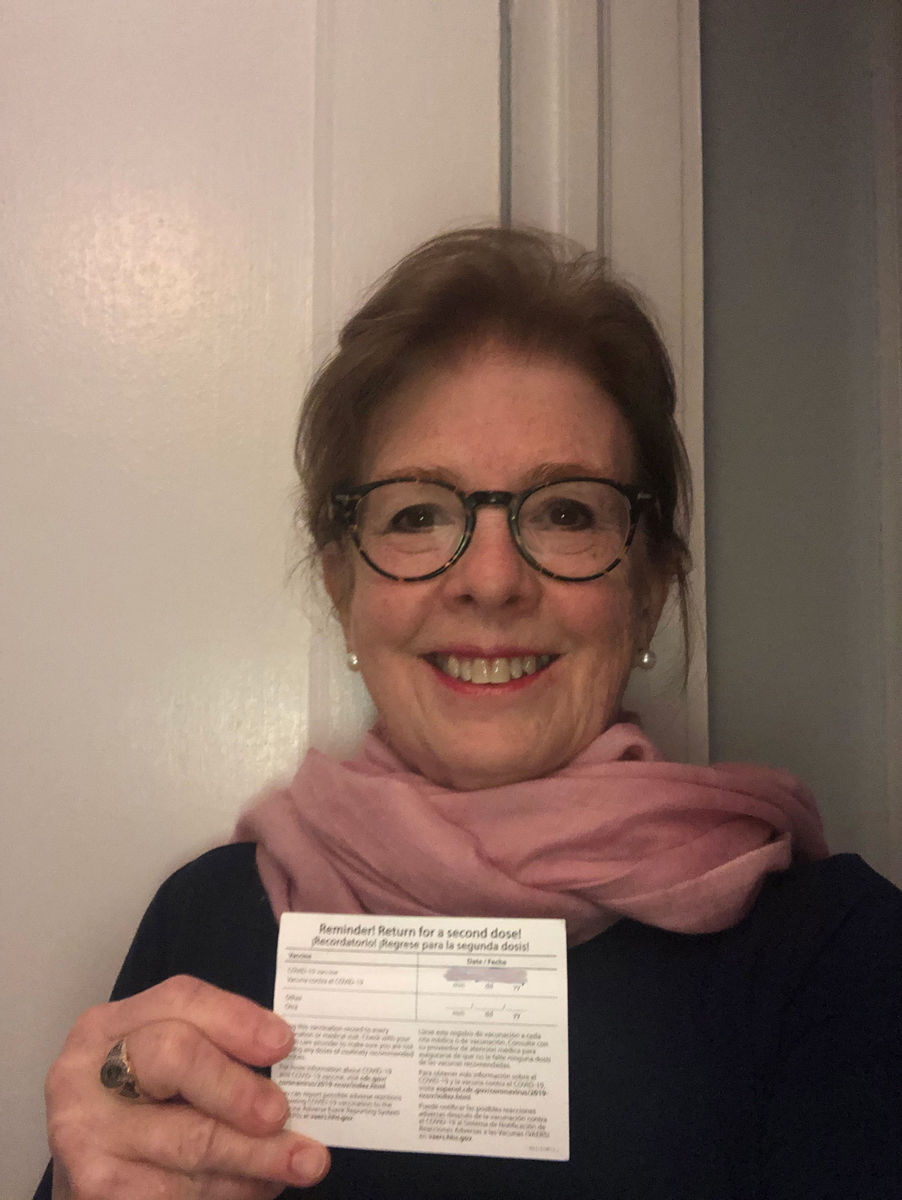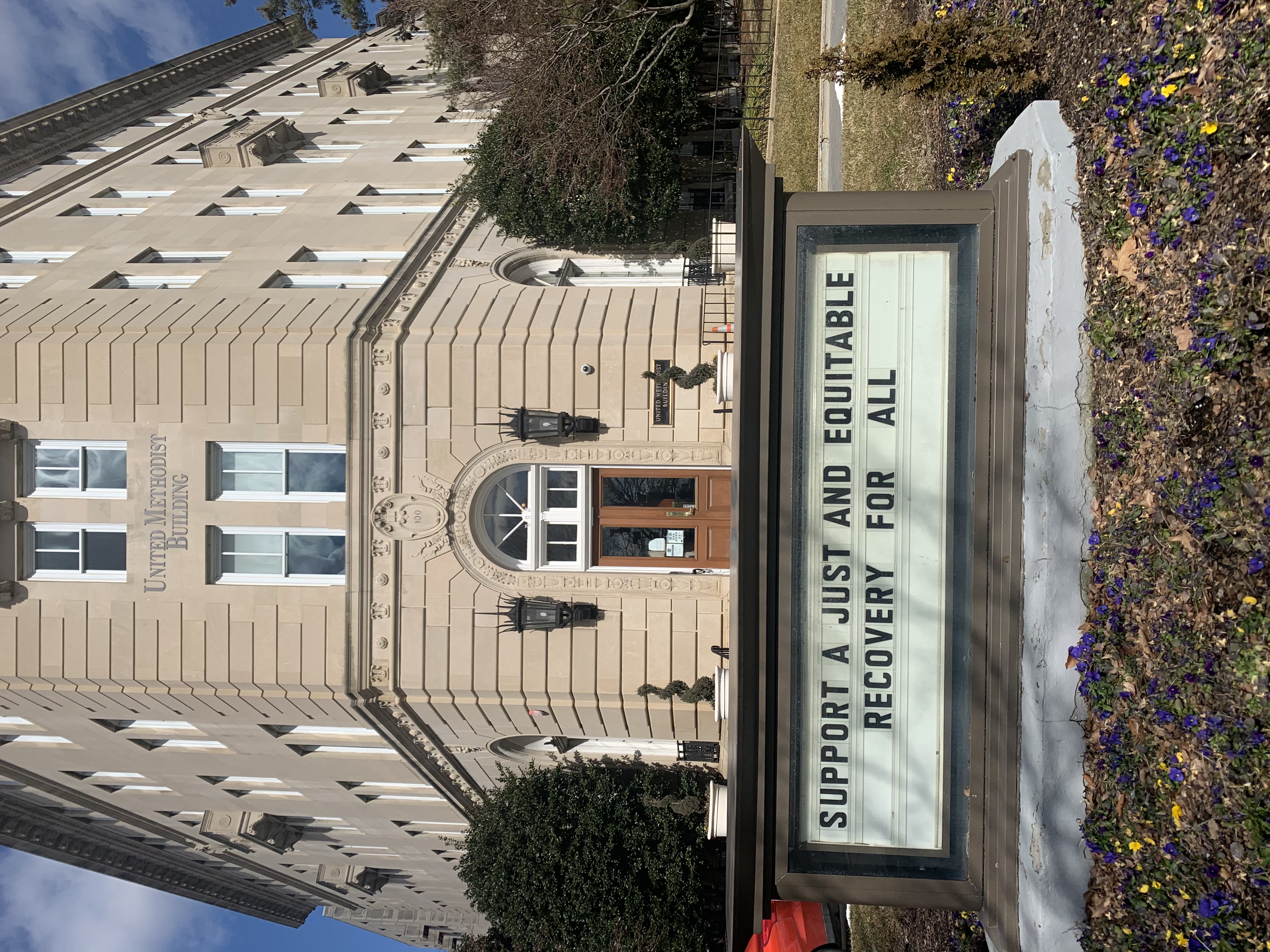Get your shot!
Imagine if we organized our churches to be centers for listening, educating, caring for and distributing COVID vaccines. With 28,000 United Methodist Churches in the U.S. what a difference we could make.

I have not always taken the influenza (flu) vaccine. It is not that I fear shots, but rather that I have not always been convinced of their efficacy. After a spring and summer in near isolation, I decided that it was in the best interest of my own health and public health to have a flu vaccine. There is an irony in this because in January 2020, before going to the Democratic Republic of Congo, I had no worry about receiving seven vaccines for yellow fever, hepatitis, typhoid among others. So why was I cautious about the flu vaccine?
As the days drew closer to having to consider receiving a COVID vaccine I had similar questions. Was it safe? Would it be effective? Could there be long term side effects? Personally, I understand those who have some worries about receiving the COVID 19 vaccine. For African Americans, the legacy of the Tuskegee Syphilis study casts a long shadow of distrust of medicine and public health. That twentieth-century study withheld treatment from Black Americans, intentionally letting them suffer from the disease. The reasons for skepticism and hesitation to receive the COVID vaccine are rooted in the sins of our racist history.
After months of inquiry, learning and weighing the pros and cons, I decided to get the COVID vaccine. The health experts I trust were convincing. The voice of my Mother—who was an “old school” nurse (having worked in public health as well as in anesthesia) practicing hand washing and masking as well as taking vaccines—rang in my ears. My own affinity for public health care as equally important as private health care guided my decision.
United Methodists Taking Action
We asked several Church and Society board members to share the ministries and efforts in their communities for educating and supporting the COVID vaccine. They are doing critical work in helping the vaccine roll out. Their words give us all more comfort in receiving it.
Rev. Otto Harris, the pastor of St. Mark UMC in Charlotte, North Carolina (Western North Carolina Conference) expressed how his church is working to raise awareness and educate about the COVID vaccine:
St. Mark’s UMC in Charlotte has 1) had virtual town hall information sessions with a pharmacist and health care professional, 2) shared weekly messages during our worship services dispelling myths about vaccination, and 3) received and forwarded COVID vaccination-related messages from local health care providers through e-mail, social media, and during worship services.
Further, he shared that his community is working to address the historic social injustices in public health through equitable vaccine distribution. Rev. Harris said:
Along with vaccine education and awareness, St. Mark’s UMC is in communication with one of our largest local health care providers to be a vaccination site for our community, just as we have partnered with this same provider to be a recurring site for COVID testing.
From the Philippines East Conference, Ms. Nancy Caluya Nicolas said:
I welcome with cautious celebration the Philippine national government’s pronouncement that the so-called “frontliners,” senior citizens, and “the poorest of the poor” are the first ones to be inoculated by the vaccine once it is available.
If there is one thing I want to do, [it] is to push for a program in the church and in my organization that will monitor the implementation of this official intention so that no one will be discriminated and left behind among the above-mentioned vulnerable sectors.
She also said it is urgent to dispel misinformation:
There is a need to organize information dissemination activities and to conduct public for the truth behind the vaccines addressing misinformation, proliferation of “fake news” in the social media, and skepticism among people.
This must be done because there is a prevailing belief among residents of the poor communities that the vaccine is dangerous to their health. Truth must always prevail, especially during this serious pandemic that we have been experiencing for the longest time.
What We Can Do
I, along with many GBCS staff, are engaged through our advocacy and engaging efforts are on calls with faith-leaders, the White House, Members of Congress and public health leaders concerning the COVID vaccines. It is clear that we must promote best practices for securing the health and well-being of the public in the US and around the world through the vaccine.
United Methodists have a lifelong commitment to educating, advocating, organizing and helping secure, equitable, accessible public health at all levels.
At the conference and local level let’s:
- Adopt good public health practices, like washing our hands, wearing masks, and practicing social distancing;
- Help educate others about the COVID vaccines in order to calm fears and distrust, and build understanding and trust for vaccines; and
- When it is your turn, take the vaccine.
At the national level let us:
- Contact your elected officials to support the American Rescue Plan. This plan will benefit the entire country. It will fund the vaccine rollout in your community and help us to reopen safely.
- If you or someone you know needs healthcare, you can sign up for Affordable Care Act until May 15. This is especially helpful for those who lost their job and employer-sponsored benefits because of pandemic-related closures.
Imagine if we organized our churches to be centers for listening, educating, caring for and distributing COVID vaccines. It would be a ministry of witness and empowerment to help the nation and the world heal. With 28,000 United Methodist Churches in the U.S. what a difference we could make.
